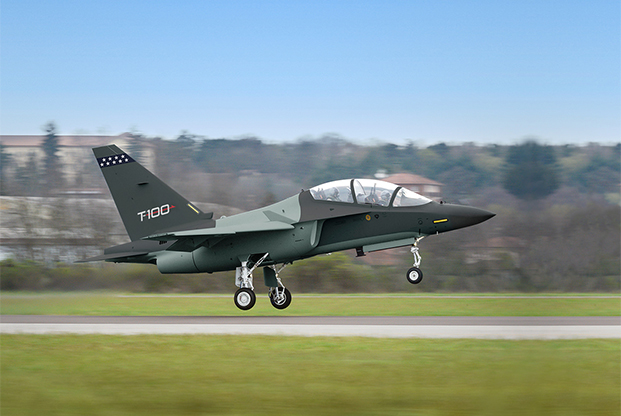
Thousands of new high-value technical, manufacturing and construction jobs may soon take root in the state of Alabama and across the United States if the T-100, the world’s most advanced integrated pilot training system, is chosen by the U.S. Air Force to be its T-X jet trainer.
The next-generation and customer-proven T-100 program, offered by Leonardo, Honeywell and CAE USA, is considered the most advanced pilot training system in the world. It may soon be manufactured in Tuskegee, Alabama, rich with a powerful military tradition dating to World War II. The famed Tuskegee Airmen “Red Tails,” the first African-American military aviators, trained there at Moton Field, before shipping out to Europe and North Africa where they flew thousands of missions.
“The state of Alabama would be honored to host the T-100 team and we’re tremendously excited by the possibility of having a state-of-the-art aircraft factory right here in Tuskegee, where the ‘Red Tails’ trained before combat in World War II,” said Gov. Kay Ivey.
T-100 program will create the most U.S. jobs
While Leonardo will build a state-of-the-art U.S. national asset?a brand new American jet trainer aircraft manufacturing facility in Tuskegee, Alabama? a T-100 win would create jobs at CAE USA in Florida and Honeywell in Arizona. Thousands of additional jobs will be created across America through an extensive U.S. subcontracting team.
“The T-100 program will create construction and manufacturing jobs throughout the U.S. but especially here in Alabama, where we have an opportunity to rejuvenate historic Moton Field, the site where the Tuskegee Airmen trained,” said Greg Canfield, the Alabama secretary of commerce. “The legacy of accomplishment in Tuskegee would enter a new era.”
.jpg)
World’s most advanced ground-based training system and flight-tested engines
The T-100 ground-based training system, developed and i?mproved in partnership with long-time T-100 teammate CAE USA of Tampa, Florida, includes a state-of-the-art cockpit-embedded processor that can link aircraft and ground-based simulators. This enables multiple pilots to cost-effectively train in simulated sorties that mimic genuine combat engagements in an air-ground training environment.
The T-100 also comes with twin F124 propulsion engines, built by long-time T-100 teammate Honeywell of Phoenix, Arizona. The F124 is the most customer-proven propulsion engine in the world for modern pilot training, with more than 500 in use among eight nations logging nearly 1 million flying hours. Designed for training, the twin-engine T-100 provides a mission-critical safety margin over single-engine trainers.
Customers have good reasons to choose the T-100 system
A version of the customer-proven T-100 system, the M-346, already is in use to train military pilots in four allied nations: Israel, Italy, Singapore and Poland. Leonardo, Honeywell and CAE USA have delivered 68 aircraft and 12 aircrew training systems.
“The T-100 is the most customer-proven integrated pilot training system in the world, designed and built with a mission to train next-generation military pilots,” said William J. Lynn, CEO of Virginia-based Leonardo DRS, the prime contractor.
The Israeli Air Force has 30 M-346 aircraft, on which the T-100 is based, and have logged nearly 20,000 sorties, training pilots at a more efficient pace than traditional methods. The system is currently being used by three allied nations to train F-35 pilots, which is central to the U.S. Air Force T-X mission.
T-100 is the low-risk solution
Already in production, the T-100 eliminates the risk of building a new developmental aircraft, by leveraging an active manufacturing line.
“The Air Force has to meet the challenge to produce next-generation fighters, bombers, tankers and training systems in overlapping cycles. The service needs a proven training system that reduces risk and increases confidence in T-X mission success,” said Marc Lindsley, the T-100 program executive.